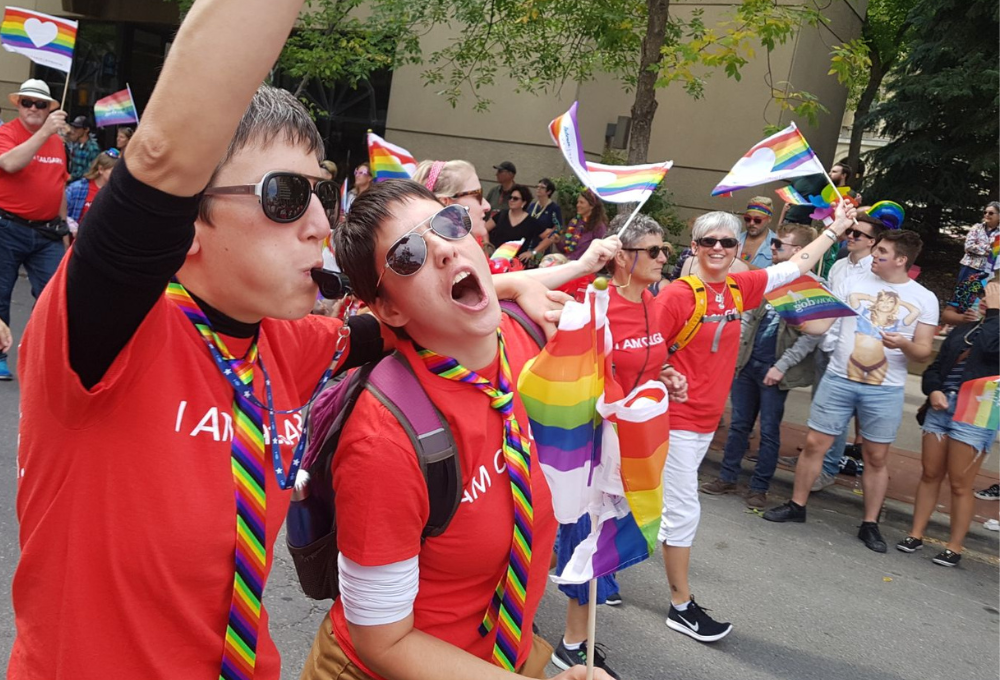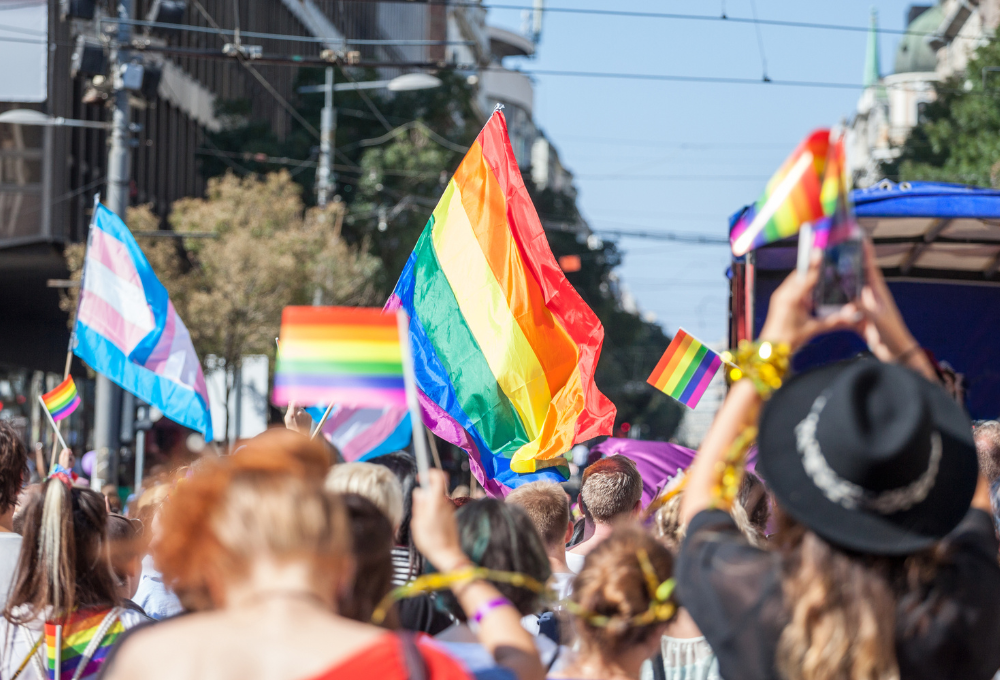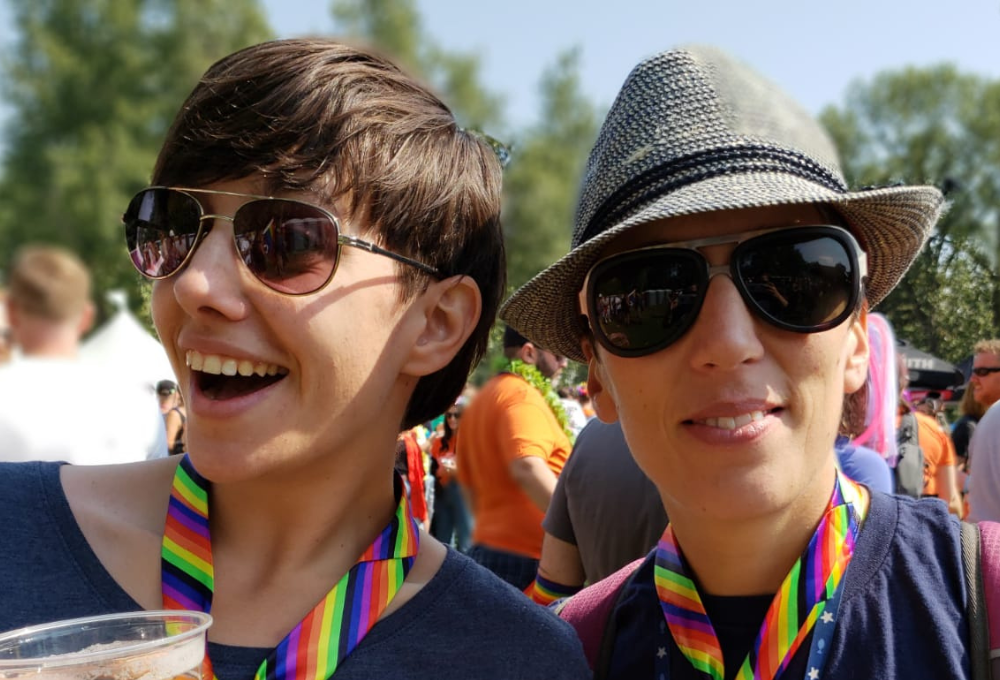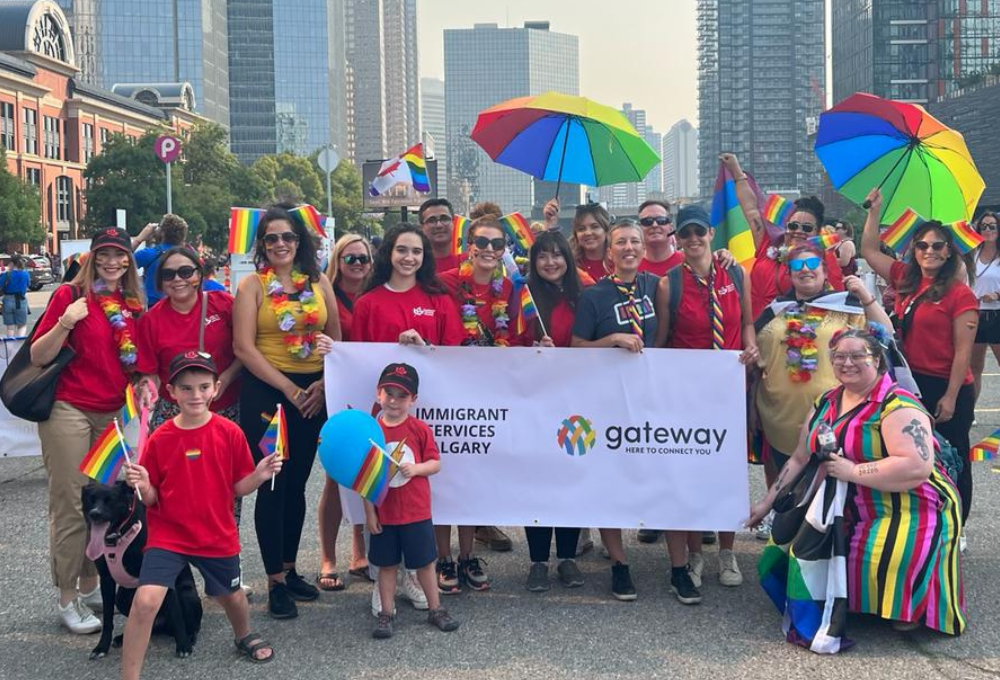Tides are changing, but parades must keep marching
By Tihana Radojcic

It has never been more important to take part in the Pride Parade in Calgary than this year.
Well, maybe in 1969. And perhaps every year after that one. But this year could be a crucial one in the LGBTQ+ movement.
It was June 28, 1969, when New York City police raided the Stonewall Inn, a racially diverse gay bar located in Greenwich Village. It spurred a six-day-long protest against police brutality, which inspired a global movement for LGBTQ+ rights.
Ever since, countries around the world have honoured the Stonewall Riots with various events to show their support for the movement. Calgary does it twice—in June to mark Pride Month, and in September to host a Pride parade. How lucky we are!
My Croatian hometown of Zagreb does it once in June, just about the time when most other places across the globe do it to commemorate historic riots.
I was reporting on the Pride parade in Zagreb when I first got a glimpse of being part of the movement.
It was the summer of 2007, and the event was labeled as high-risk. I think it still is. A few hundred brave souls gathered in the city centre surrounded by police, who were there to protect the parade from the counter-protests.
Many arrests were made that day, and many violent attacks continued late into the night.
That did not stop me from going. On the contrary.
The next year I went with a friend. The year after, two colleagues from university joined me. In the years that followed, it became a regular part of my summer social calendar.
Parallel Universe
I attended one in Calgary only three months after I landed in 2014.
It was the first time in my life that I saw two dads with their kids, hugging and walking freely. I saw hundreds of businesses and non-profit organizations marching hand in hand and waving rainbow flags while blasting Studio 54 tunes from their big trucks.
The Calgary police were there but in the parade. Before they stopped formally participating in 2019, they were marching, singing, dancing, and holding signs that called for respect and equality.
It felt as if I was in a parallel universe. In one, I dread the presence of police because I know it means that trouble is coming. In the other, I cautiously wave back at them and look around to double-check that no one will throw a Molotov cocktail, a rock, an ashtray, or shout words I had suppressed by now.
There were no DIY bombs, no rocks, no glasses, no slurs. The event was as peaceful and as fun as it can be.
Festivities continued across the city. My friends and I celebrated until the early morning hours, walking back home without fear of being attacked on the street, or in an alley.
Changing Tides
I look forward to Pride parades just as others look forward to a vacation. But Pride is not a vacation. To me, it has always been, and will always be, a protest—just like it was for the pioneers of the Stonewall Uprising.
The Pride Parade is a day to remember all the folks out there who have made sacrifices so that I can write this story knowing I will not lose my job or be imprisoned. Or worse.
It is a day to observe. Observe the disturbing rate of increased violent attacks on the LGBTQ+ community.

In the U.S. alone, a record 70 anti-LGBTQ laws have been enacted. Over 520 anti-LGBTQ+ bills were introduced in state legislatures. Out of those, over 220 bills specifically target transgender and non-binary people. And this is all in 2023. New Brunswick and Saskatchewan are, tragically, following their lead.
Cities and towns all over Canada have been confronted with the rising tide of threats, intimidations, and direct violence towards the community. It is horrifying.
Homophobic and transphobic protests are happening in front of schools, public pools, libraries, cafes, and health centers. You name it.
The situation got so bad in Calgary that in March this year city council had to put together the Safe and Inclusive Access Bylaw to protect its LGBTQ+ citizens from increasing attacks in public spaces.
A Ray of Hope
Paradoxically, or promisingly, some polls are showing growing support for the LGBTQ+ community in Canada. A recent Ipsos survey found that Canada is one of the most accepting and welcoming countries for LGBTQ+ individuals, with room to improve.
This gives me hope. And in the words of Harvey Milk, hope will never be silent.
Hope is what gets me through the day after reading the news about another lost life because of a publicly displayed rainbow flag. Or because a youth came out as trans. Or because a gay couple in one of the 73 countries that criminalize LGBTQ+ existence had to claim asylum to avoid imprisonment or death.

And so, Pride may be a fun protest, but it is still a protest. In fact, it must be fun—otherwise, people would not be attending. It’s just our psychology, nothing else.
It must be loud. It must disrupt the traffic. It must interfere with the daily routine. It must spoil vacation plans. It must be in your face with all the rainbows, wigs, leather, glitter, and everything you would see in Cher’s concert.
It must remind us of all of the systemic violence that the community is facing. Daily.
Change is Possible
Last year was Immigrant Services Calgary’s first time participating in the Pride Parade. This year it will be its second.
By next year we will stop counting because this will become our tradition. Just as it has become the tradition for many of our partner agencies.
And this is where, and how, the change occurs. At your workplace, in your school, on a train, on your vacation, during family gatherings, or in the store.
Even if you do not feel comfortable attending the parade—talk about it. Talk about the news you read. Be curious. Explore, learn, be aware. Attend a film festival, read a book, or hear many personal stories.

You do not have to drop rainbow stickers on the sidewalks you walk on or display a hundred flags in front of your home or office. Do what makes you feel comfortable. Be an ally.
You do not have to wait for the elections or new legislation to kick in to see the change or make an impact. You can create an environment where your colleagues, friends, neighbours, and family members feel safe and welcome.
You have the power to make the change. Today.
About the Author
Tihana Radojcic moved to Calgary from her Croatian hometown of Zagreb in 2014 as a temporary foreign worker. She is a human rights activist and a freelance writer. She currently works as an interim manager at Immigrant Services Calgary.
Read More Newcomer Stories
- Building capacity and creating connections: why volunteering is vital to non-profits and community – Immigrant Services Calgary
- A lifelong friendship: Nurturing connections on the path of immigration – Immigrant Services Calgary
- Immigrating to Calgary allowed me to be openly gay—but our city needs more spaces for LGBTQ+ Calgarians
- Meet Hanna: Escaping the war in Ukraine to find community in Calgary
- Dawari’s Journey: A Beacon of Hope for Newly Arrived Refugees in Calgary
💙Be inspired by the real-life journeys of newcomers
